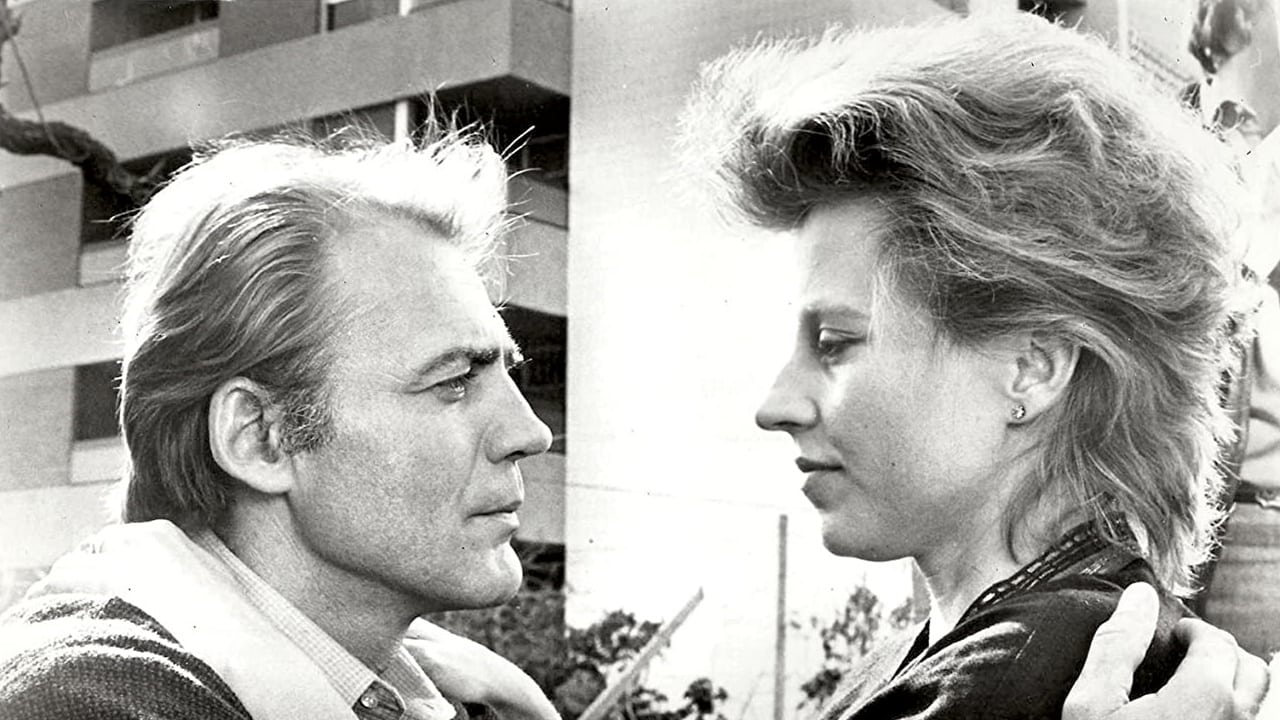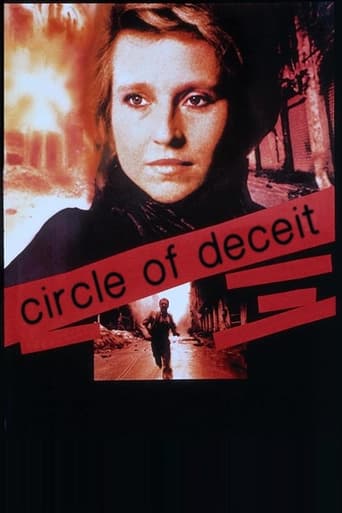

The performances transcend the film's tropes, grounding it in characters that feel more complete than this subgenre often produces.
... View MoreThis movie was so-so. It had it's moments, but wasn't the greatest.
... View MoreBy the time the dramatic fireworks start popping off, each one feels earned.
... View MoreThe film never slows down or bores, plunging from one harrowing sequence to the next.
... View More"Die Fälschung" is a West German movie from 1981, so this one had its 35th anniversary last year. This was made by director Volker Schlöndorff briefly after his "Die Blechtrommel" won an Oscar. He is also one of the people who adapted the Nicolas Born novel for the screen here and he got help by illustrious names like Margarethe von Trotta and Jean-Claude Carrière. The cast of this film that runs for slightly under 110 minutes isn't too shabby either. Bruno Ganz plays the male lead, Hanna Schygulla the female lead and they both were nominated for a German Film Award for their performances. Jerzy Skolimowski, actually a successful filmmaker himself, won a German Film Award even for his supporting performance and there are more known names in here, especially Gila von Weitershausen. This is the story of a journalist who divides to travel to Beirut, Lebanon, in order to report right at the center of it all about the conflict between the Christians and Palestinians, a conflict that is still oh so present today several decades later.Unfortunately the film never really to make an impact on me, neither in terms of the war footage nor in terms of the relationship struggles with several women of the protagonist. In the end it was somewhat nicely done the way they showed how this aforementioned almost drove him to insanity, but it's just not worth sitting through everything before that. I like Bruno Ganz quite a bit, which is why I was a bit disappointed here how not even he managed to make this worth watching for me. Schygulla, however, I have never been big on and this isn't changing through this film either. She always comes off as fairly try-hard to me and lacks in subtlety in a way the character really would have needed. Then again, I have never been a big Schlöndorff fan, also not of "Tin Drum, which I mentioned earlier, so I am not surprised actually this one appealed to me so little. There is something to his style that I maybe just can't appreciate. I like fact-based films that are bleak by other filmmakers, but Schlöndorff just does very very little for me. But maybe it is also von Trotta's impact as I find her even worse judging some of the stuff I have seen. I have to give this one a thumbs-down and it's quite a shame it did not work out better as the subject sure is an interesting one. Watch something else instead.
... View MoreLacking even a token gesture of Hollywood gloss, this inside look at the Lebanese civil war is strong stuff indeed, which may be why it never found an audience (in this country at least) when first released. The filmmakers made use of actual Beirut locations to follow the brutal, ambiguous account of one journalist's education into the abject moral poverty of violence, and the documentary realism of the background lends a frightening authority to the subject. It's difficult at times to tell just what is real and what is staged, and the essential nihilism of the conflict is further reinforced by the film's detachment from any political sympathies, although there's something uncomfortable in the idea of a German citizen pondering the immorality of genocide. We're led to assume his private and professional ethics are being tested in the face of such extreme bloodshed, but it's hard to avoid making deeper historical connections.
... View MoreI agree with Benjamin Stello of Sweden but want to add that the Film is made on Location in Beirut and is nearly Documentary. It is before Israel invaded Lebanon to get rid of PLO Terrorists. It shows the situation after Lebanese Civil War that started 1975. Beirut is divided into many Rival Quarters. The Palestinians Controlling part of Beirut. A Hellish situation where everybody is Against everybody. Similar to Yugoslavia some years later. Another Book I recommend is Thomas Friedman's "From Beirut to Jerusalem" which describes Beirut a few years later. This movie I only saw once in 1982 and is unforgettable. I also recommend other films by this Director. The Tin Drum and Others.
... View MoreVolker Schlöndorff, famous german director who won the foreign language- oscar for "Die Blechtrommel", here presents a picture about a journalist doing a reportage in Beirut during the riots between Christians and Moslems. Georg Laschen, a german journalist, travels to Beirut for seeing things and making a great story out of it. He leaves behind his marriage, which is in a crisis, but can not completely forget about it. So he finds himself always split between cruelty and war in Beirut and the things in Germany that need to be soluted. The director did a brilliant job. Accompanied by some very great actors and actresses, the whole film is very true to life. War is shown in all it's cruelty, but without the need of showing too explicite violence. The film does not transport a one-and-only message that he tries to confirm, but presents the viewer a very complex movie, a film who needs viewers that are willing to think. Contributing to this effect is the fact that the film is done in different languages. While German is the "basic", the actors speak to different persons in different languages (English, French, Arab). Overall, a brilliant film. Not for popcorn, maybe, but definitely very worth seeing.
... View More